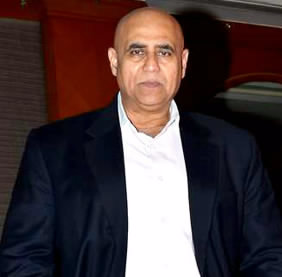A Quote by Said Sayrafiezadeh
The benefit of writing a collection - as opposed to a novel - is that I'm able to have some version of the war in each story without having to comment on its all-encompassing nature. Turn the page and here are new characters and new situations, but the war remains... Isn't that how life has been for us for over a decade?
Related Quotes
I opposed the Suez war, I opposed the Falklands war. I opposed the Libyan bombing and I opposed the Gulf war and I never believed that any of those principled arguments lost a single vote - indeed, I think they gained support though that was not why you did it. What has been lacking in Labour politics over a long period is a principled stand
Most of us who were opposed to the war, especially in the early '60's - the war we were opposed to was the war on South Vietnam which destroyed South Vietnam's rural society. The South was devastated. But now anyone who opposed this atrocity is regarded as having defended North Vietnam. And that's part of the effort to present the war as if it were a war between South Vietnam and North Vietnam with the United States helping the South. Of course it's fabrication. But it's "official truth" now.
This new war, like the previous one, would be a test of the power of machines against people and places; whatever its causes and justifications, it would make the world worse. This was true of that new war, and it has been true of every new war since... I knew too that this new war was not even new but was only the old one come again. And what caused it? It was caused, I thought, by people failing to love one another, failing to love their enemies.
So a war begins. Into a peace-time life, comes an announcement, a threat. A bomb drops somewhere, potential traitors are whisked off quietly to prison. And for some time, days, months, a year perhaps, life has a peace-time quality, into which war-like events intrude. But when a war has been going on for a long time, life is all war, every event has the quality of war, nothing of peace remains.
Possibly my hatred of war blinds me so that I cannot comprehend the arguments they adduce. But, in my opinion, there is no such thing as a preventive war. Although this suggestion is repeatedly made, none has yet explained how war prevents war. Worse than this, no one has been able to explain away the fact that war creates the conditions that beget war.
The unawakened mind tends to make war against the way things are. To follow a path with heart, we must understand the whole process of making war within ourselves and without, how it begins and how it ends. War’s roots are in ignorance. Without understanding we can easily become frightened by life’s fleeting changes, the inevitable losses, disappointments, the insecurity of our aging and death. Misunderstanding leads us to fight against life, running from pain or grasping at security and pleasures that by their nature can never be satisfying.
But to be perfectly frank, this childish idea that the author of a novel has some special insight into the characters in the novel ... it's ridiculous. That novel was composed of scratches on a page, dear. The characters inhabiting it have no life outside of those scratches. What happened to them? They all ceased to exist the moment the novel ended.
Usually at the end of each story we're thrown clear out of the story's world and then we're given a new world to enter. What's unique about a linked collection is that it can deliver both sets of narrative pleasures - the novel's long immersion into character-world and the story anthology's energetic (and mortal) brevity - the linked collection is unique in its ability to be both abrupt and longitudinal simultaneously.
I had wanted to make this film [Suffragette] for over a decade. There has never been a cinematic rendition of this story. I had not been taught any of the history of the movement at school, and the version I had gleaned had been the Mary Poppins story of women in large hats, petitioning. There was another version.
Writing fiction lets you be a little more emotional and unguarded, a little freer. Writing fictional characters is also really different from writing about real people. In nonfiction, you can only say so much about the people you interact with. After all, they're actual people, their version of their story trumps yours. In a novel, you can build a character, using certain parts or impressions of someone you know, and guessing or inventing others, without having to worry that your guesses or memories or inventions are wrong.






































